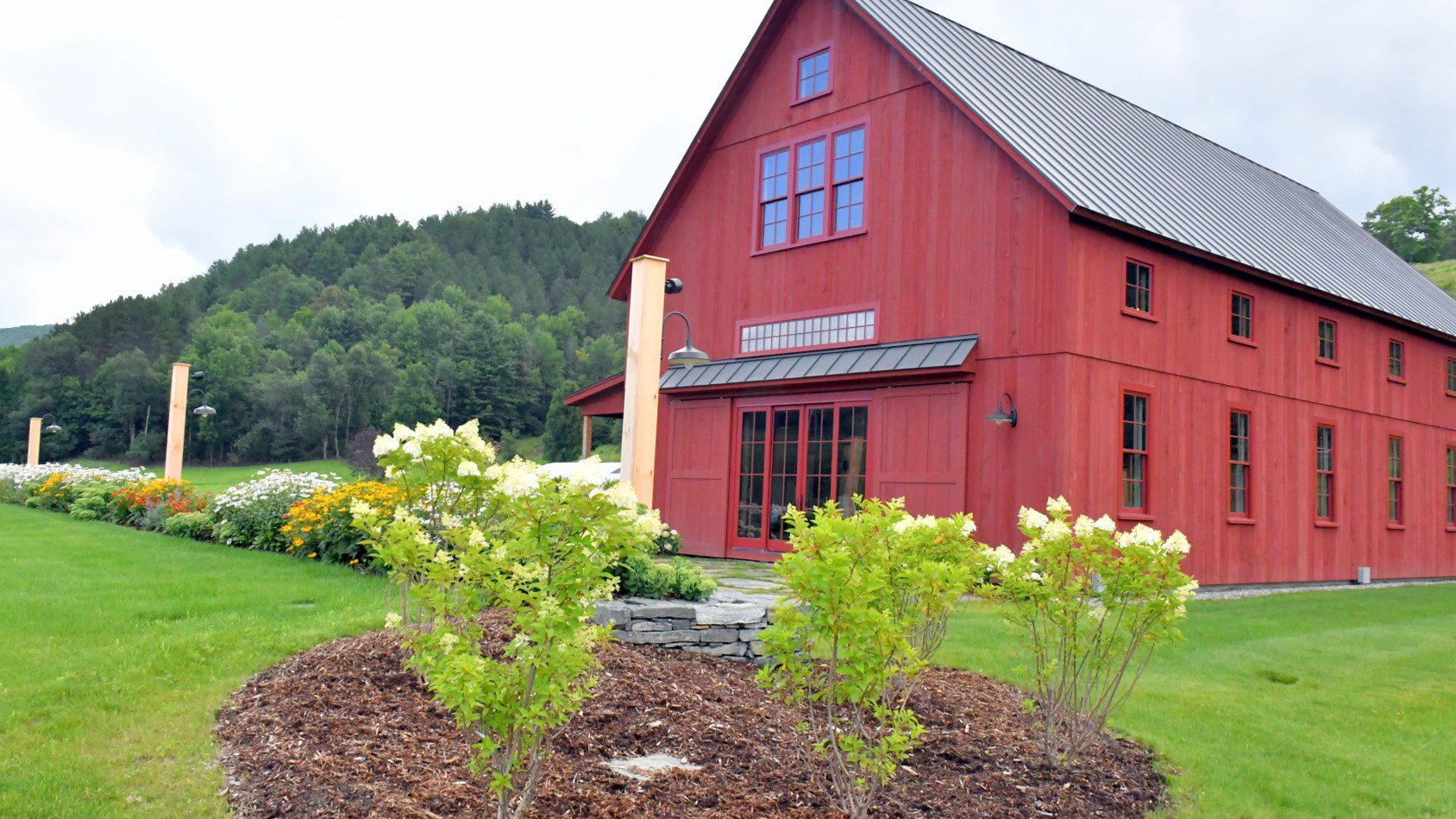By Tom Ayres , Senior Staff Writer
The Vermont Superior Court, Environmental Division, commonly known as the Environmental Court, has overturned a December 2023 decision of the Woodstock Town Development Review Board (TDRB) to grant site plan and conditional use approval for a long-stalled on-farm restaurant at 650 Pomfret Road in Woodstock. In a ruling dated April 24, Environmental Court Judge Thomas G. Walsh found that the footprint of the restaurant project as presently proposed by Peace Field Farm developer John Holland and farmer/restauranteur Matt Lombard exceeds the Woodstock Town zoning bylaw provision limiting the allowable footprint for on-farm restaurants to 2,800 square feet.
Walsh granted a partial summary judgment to appellants Tom Meyerhoff and Cynthia Volk, represented by attorney Christopher Boyle of Lincoln. In issuing the partial ruling, however, Walsh noted that appellees Holland and Lombard have “repeatedly indicated that they may wish to revise their application depending on this Court’s ruling.” To that end, Walsh said the court would decline to void the permit issued by the TDRB until Holland and Lombard have had an opportunity to submit a revised application. Therefore, the Environmental Court judge has slated the matter for a 30-minute status hearing via a web link on Monday, June 17, to permit the Peace Field partners to submit an alternative to their present proposal that might conform with the court’s reading of the present Woodstock zoning by-laws governing on-farm restaurants.

Peace Field Farm, the on-farm restaurant at 650 Pomfret Road in Woodstock.
The April 24 ruling by Walsh has the added impact of further delaying a long-awaited decision from the District 3 Environmental Commission of the Vermont Natural Resources Board regarding granting of an Act 250 permit to Peace Field under the present Woodstock zoning regulations. Meyerhoff and Volk have asked the District 3 Commission to further delay its decision on the Act 250 permit until after the June 17 status hearing on the TDRB ruling before the Environmental Court. The granting or denial of Act 250 permit has been the subject of District 3 commissioners’ deliberations for two months since the public hearing on the matter was recessed in early March. Boyle has filed a motion on behalf of Meyerhoff and Volk asking that the permit decision be postponed in the wake of Judge Walsh’s April 24 ruling overturning the TDRB approval. District 3 Commissioner coordinator Peter Kopsco has responded by giving Holland and Lombard until Friday, May 17, to respond to the request for a further delay in the permitting process. The alleged non-conformance of the most recent Peace Field farm restaurant proposal with the current Woodstock zoning regulations is the crux of the Meyerhoff/Volk argument against the District 3 Commission’s granting of an Act 250 permit.
Contacted on Sunday, Peace Field Farm owner and co-developer Holland voiced his continued frustration with the delays in implementing the restaurant plans, which have been the subject of Act 250 and related Environmental Court appeals by both Holland, Meyerhoff and Volk, and their respective counsels since September of 2020. He added that he and Lombard are exploring several options moving forward, in consultation with their counsel, Burlington-based attorney Anthony LaRosa.
“This could have [us] removing 550 square feet from the structure. That’s a ludicrous option, but that’s how we might get past the footprint definition in the Woodstock by-laws,” Holland commented. “We could pivot back to where we were in 2020 and simply seek a permit for an accessory on-farm business again,” the Peace Field Farm proprietor continued, “And then there’s the possibility of going back to the selectboard and seeking a change to the way they wrote the by-laws, which is to remove the verbiage ‘footprint’ from the square-footage calculation and insert ‘interior usable area’ instead. That way the DRB in the future could take a structure like a big single-family home in Woodstock larger than 2,800 square feet or a large barn of 10,000 square feet and say, ‘We’re going to allow the remodeling of this portion of the property to bring it up to assembly standards — and then this other portion of it might be just storage space or given over to some other use not related to the restaurant.’ With that small modification of the language, I think we’d be fine. The selectboard would have to change the word ‘footprint’ — they just threw that term in the by-laws and that’s what has this all mixed up right now.”
Holland also held out hope potential future changes to the state’s Act 250 law could bode well for the future of a farm-to-fork restaurant along Pomfret Road. “The legislature could reform Act 250,” he offered. “But I’m reluctant to rely on other people to come and save me, whether it’s the State Legislature or the Woodstock Selectboard. There’s just [only] so much I can do. I mean, the baby’s coming, so what are you going to do about it?”